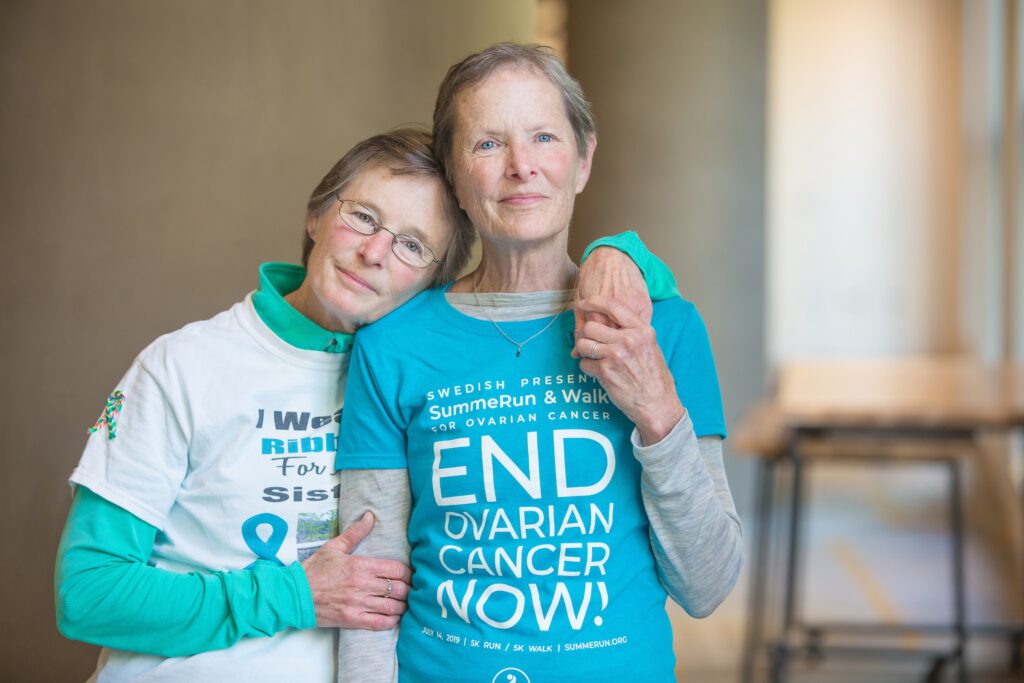
Managing Insurance, Work and School During Cancer
Insurance, Work & School
A gynecologic cancer diagnosis can disrupt many areas of life such as work, school, and finances. This page provides comprehensive resources and advice to help you navigate and manage these challenges.

In This Section
Understanding Health Insurance
Dealing with Health Insurance
Understanding the nuances of your health insurance is important. Below we have defined common insurance terms and plans, and given details on insurance for young adults, as well as genetic testing insurance coverage.
Insurance Terminology
- Co-payment: Set fee paid at the time of service.
- Deductible: Amount paid annually before insurance covers expenses.
- Co-insurance: Percentage of the bill paid after meeting the deductible.
- Premium: Regular payments to the insurance company for coverage.
Types of Health Insurance Plans
HMOs: Require in-network providers and typically have lower premiums.
POS Plans: Similar to HMOs but allow out-of-network visits with referrals.
PPOs: Mix of HMOs and fee-for-service, offering more provider flexibility.
Fee-for-Service: Most freedom but higher out-of-pocket costs.
Insurance for Young Adults
Under the Affordable Care Act (ACA), individuals under 26 can remain on their parents’ insurance. It also removes lifetime limits and prohibits discrimination based on pre-existing conditions.
Insurance Coverage for Genetic Testing
Genetic testing helps uncover cancer risks. Coverage varies, so consult your insurance company and a genetic counselor before proceeding.
Preventive Services Covered Under the ACA:
The preventive services of genetic counseling and testing covered under the Affordable Care Act are based on recommendations from the United States Preventive Services Task Force (USPSTF) and the Department of Health and Human Services, Labor and Treasury, and include women with the following risk factors:
-
- Women who have been previously diagnosed with ovarian cancer
- Ashkenazi Jewish women with one first-degree relative or two second-degree relatives on the same side of the family with breast or ovarian cancer
- Non-Ashkenazi Jewish women who have:
- two first-degree relatives who had breast cancer; at least one of these two were diagnosed before age 50;
- three or more first- or second-degree relatives with breast cancer regardless of age at diagnosis;
- a combination of both breast and ovarian cancer among first- and second-degree relatives;
- a first-degree relative with bilateral breast cancer;
- a combination of two or more first- or second-degree relatives with ovarian cancer, regardless of age at diagnosis;
- a first- or second-degree relative with both breast and ovarian cancer at any age; or
- a history of breast cancer in a male relative
For more information on researching different insurance plans in your state, see our resource page here.
Privacy
The Genetic Information Nondiscrimination Act (GINA) of 2008 is a law that protects the privacy of your family health history, genetic test results, genetic counseling information and your participating genetic research. This means it is illegal for your employer to ask or consider your genetic history in any employment matter. It is also illegal for your health insurance company to use any or your genetic information or your family’s genetic information against you in their terms of coverage.
Managing Your Job During Cancer Treatment
Maintaining a job while undergoing cancer treatment can be challenging. Common fears include job loss, not being able to perform as well as you did pre-diagnosis, and/or fear of not finding a job post-treatment. Remember, it’s illegal to fire someone due to a cancer diagnosis. The Americans with Disabilities Act (ADA) requires employers to make accommodations if needed. For workplace support, see our resources.
ADA
It is against the law to fire someone because of a cancer diagnosis. In fact, your employer may be obligated to make certain accommodations under the Americans with Disabilities Act should you need them.
Continuing Your Education
Balancing School and Treatments
Certain treatments can impact your ability to concentrate and manage coursework and exams. It’s essential to create a plan that accommodates your treatment schedule.
Tips for Students
- Meet with Advisors: Discuss your goals and create a flexible plan.
- Reduce Course Load: Consider taking fewer classes or time off if needed.
- Utilize Resources: Access campus services like counseling and health services.
Financial Support and Assistance
Dealing with Finances
The financial repercussions of a cancer diagnosis can be daunting. Many organizations, however, offer help with everything from lodging and transportation to scholarships, grants, legal support, how to manage bills, and basic benefits. See the wide range of resources available to help with financial challenges.
Here are some additional resources to learn more:
Related Topics


Resource Directory
Help is available for gynecologic patients and loved ones. View our list of trusted resources.

Caring for Someone
Caring for a loved one with gynecologic cancer can be very challenging. Find essential information and resources to help you navigate this journey.